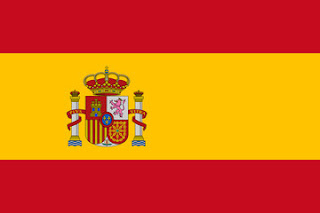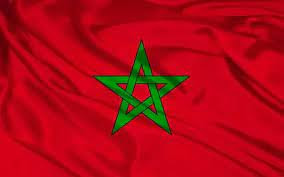A Tapestry of Moroccan-Spanish Relations:
History, Challenges, and Cooperation
Introduction:
Historical Roots:
The historical connections between Morocco and Spain date back to antiquity when the Iberian Peninsula was part of the Roman Empire, and Morocco was home to various indigenous cultures. However, it was the Islamic expansion in the early 8th century that cemented ties between the two regions. The Moors, North African Muslims, crossed into Spain in 711 AD, bringing with them advanced knowledge, architecture, and culture. Their legacy is evident in Spain's architecture, language, and traditions.
In 1492, the Catholic Monarchs, Ferdinand and
Isabella, completed the Reconquista, recapturing Spain from the Moors. This
event also marked the expulsion of both Jews and Muslims, many of whom found
refuge in Morocco. This historical legacy creates a deep cultural and historical
connection between the two countries.
Contemporary Relations:
Moroccan-Spanish relations in the modern era have been
marked by periods of both cooperation and tension. Some key aspects of this
complex relationship include:
1. Migration and Border Control:
- The issue of migration has been a prominent concern. Spain serves
as a gateway to Europe for many African migrants, including Moroccans. The
enclaves of Ceuta and Melilla on the North African coast are focal points
of this issue.
2.
Economic Ties:
- Economic cooperation has grown significantly in recent years. Spain
is one of Morocco's largest trading partners, with both countries
benefiting from this economic synergy.
3.
Counterterrorism and Security:
- Morocco and Spain have cooperated extensively on counterterrorism
efforts and intelligence sharing to combat extremist threats.
4.
Cultural Exchange:
- The deep-rooted historical and cultural connections have
facilitated a vibrant cultural exchange between the two countries.
5.
Territorial Disputes:
- There have been ongoing tensions over the disputed territories of
Western Sahara, which Morocco claims sovereignty over. Spain, due to its
historical involvement, has been a part of the UN peacekeeping mission in
the region.
Challenges in the Relationship
Despite the long history and cultural connections,
Moroccan-Spanish relations face several challenges:
1.
Migration and Border Control:
- The issue of irregular migration continues to strain the
relationship. The enclaves of Ceuta and Melilla have witnessed numerous
border crises.
2.
Western Sahara Dispute:
- The ongoing Western Sahara dispute remains a contentious issue.
Spain's historical involvement in the region and its role in the UN
peacekeeping mission create complexities in the relationship.
3.
Competing Interests:
- Both countries have different economic, political, and security
interests, which can lead to diverging policy objectives.
Cooperation and Diplomacy
Despite the challenges, Moroccan-Spanish relations
have seen several instances of successful cooperation:
1.
Economic Ties:
- Economic cooperation has significantly expanded, with Spain
investing in Morocco in sectors like renewable energy, tourism, and automotive
manufacturing.
2.
Counterterrorism and Security:
- Both countries collaborate closely in the fight against terrorism
and organized crime. Intelligence sharing has led to the disruption of
extremist networks.
3.
Diplomatic Engagement:
- Diplomatic channels are frequently used to address contentious
issues, fostering dialogue and negotiation.
4.
Migration Agreements:
- Bilateral agreements and partnerships between Spain and Morocco aim
to address the migration issue through cooperation rather than
confrontation.
Cultural
Exchange:
- Cultural ties remain strong, with numerous cultural festivals,
events, and exchanges promoting understanding and collaboration.
Conclusion:
Moroccan-Spanish relations are a complex interplay of
history, culture, and modern geopolitical challenges. The two countries share
deep cultural ties, but also face contemporary issues, such as migration and
the Western Sahara dispute, that demand diplomatic engagement and cooperation.
As both countries continue to navigate these
challenges, they also recognize the mutual benefits of economic cooperation and
joint efforts in countering terrorism. The relationship between Morocco and
Spain is a dynamic one that reflects the complexities of the contemporary
world. By focusing on dialogue, diplomacy, and shared interests, these two
nations aim to build a constructive relationship that respects their shared
history and addresses current challenges in a spirit of cooperation.
References:
1.
Hoisington,
William A. (2013). "Spain and the Western Sahara: An Exploration of
Ambiguity." Institute
for the Study of Diplomacy, Georgetown University.
2.
BBC News.
(2021). "Spain's King Felipe visits former Spanish colony of Morocco."
https://www.bbc.com/news/world-africa-59238253.
3. Saoud, Rabie. (2020). "The Migration Crisis in
Ceuta: A Moroccan Perspective." Al Jazeera. [https://www.aljazeera.com/opinions/2020/12/14/the-migration-crisis-in-ceuta-a-moroccan-perspective](https://www.aljazeera.com/opinions/2020/12/14/the-migration-cris









No comments:
Post a Comment